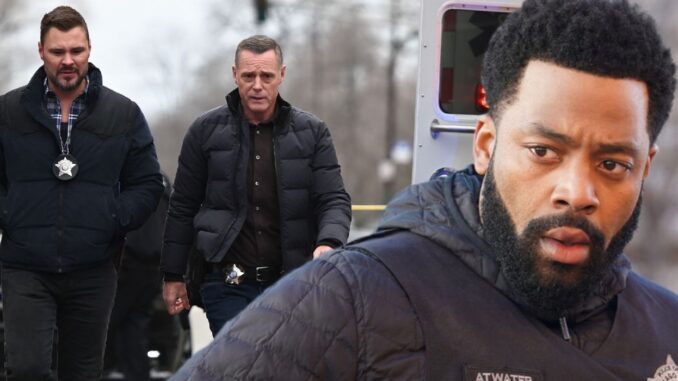
The Unyielding Pulse of the Windy City: Why Chicago P.D. Continues to Captivate Fans After 12 Seasons
In the ever-shifting landscape of television, where shows rise and fall with bewildering speed, the longevity of Chicago P.D. stands as a testament to its enduring power. Twelve seasons in, the gritty police procedural, born from the fertile ground of Dick Wolf's "One Chicago" universe, continues to hold a tight grip on its audience, drawing them back week after week, year after year. It's more than just a crime show; it's a deep dive into the moral complexities of law enforcement, a character study of flawed heroes, and a vibrant, if often dangerous, love letter to the city it calls home. The enduring captivation stems not from a single magic bullet, but from a potent cocktail of relentless realism, unparalleled character development, and an unshakeable sense of community – both on-screen and off.
Foremost among its draws is the show's unflinching commitment to a morally ambiguous reality. Chicago P.D. rarely offers easy answers or clear-cut villains. Instead, it thrusts its characters, and by extension its viewers, into the thorny ethical dilemmas that define modern policing. The linchpin of this realism is Sergeant Hank Voight, masterfully portrayed by Jason Beghe. Voight is not a typical hero; he operates in shades of grey, often bending, if not outright breaking, the rules to achieve what he believes is justice. His methods are controversial, yet his unwavering dedication to protecting the innocent and avenging the wronged resonates deeply. This willingness to explore uncomfortable truths – corruption within the system, the systemic issues plaguing inner-city communities, the psychological toll on officers – elevates the show beyond mere procedural, transforming it into a compelling, often uncomfortable, reflection of societal challenges. Fans aren't just watching a case unfold; they're grappling with the profound questions it raises.
Beyond the gritty narrative, Chicago P.D. thrives on the deeply human stories of its ensemble cast. Over twelve seasons, viewers have witnessed their favorite characters grow, stumble, and evolve in profound ways, fostering a powerful sense of investment. We've seen Adam Ruzek transform from a cocky rookie into a grounded, committed father figure, while Kim Burgess has navigated unimaginable trauma with an inspiring resilience that speaks to the strength of the human spirit. Kevin Atwater consistently walks the difficult line of being a Black police officer in a community often at odds with law enforcement, bringing a vital perspective to the team. And Hailey Upton, despite her recent departure, exemplified the internal battles and psychological burdens that come with the job. These are not static archetypes but living, breathing individuals whose triumphs feel earned and whose heartbreaks are genuinely felt. The palpable chemistry among the Intelligence Unit creates a "found family" dynamic that loyal viewers cherish, making their personal victories and defeats as compelling as any high-stakes investigation.
Moreover, Chicago itself is a powerful, almost tangible, character in the series. The city's iconic skyline, its diverse neighborhoods, its brutal winters, and its vibrant street art are not merely backdrops but integral elements of the show's identity. Chicago P.D. shoots extensively on location, immersing viewers in the authentic pulse of the Windy City. This commitment to realism extends beyond just the visuals; the show frequently tackles issues specific to Chicago, from gang violence and political corruption to the complex relationship between the police and various communities. This grounding in a real, breathing metropolis adds layers of authenticity and immediacy that other procedurals, set in generic, nondescript cities, often lack. Fans feel they are exploring Chicago alongside the Intelligence Unit, gaining a deeper understanding of its challenges and its spirit.
Finally, the show's enduring appeal is reinforced by its relentless pace and unpredictability. While there's a comforting procedural rhythm, Chicago P.D. is adept at throwing curveballs, ensuring no character is truly safe and no outcome is guaranteed. High-stakes action sequences, often personal in nature, keep viewers on the edge of their seats. The long-form storytelling, with overarching arcs spanning multiple episodes or even seasons, rewards consistent viewership, turning casual watchers into dedicated fans. And as a cornerstone of the "One Chicago" universe, the seamless crossovers with Chicago Fire and Chicago Med provide an additional layer of interconnectedness, enriching the world and allowing for character interactions that deepen the narrative tapestry.
In conclusion, Chicago P.D. has defied the odds, not by reinventing the wheel with each passing season, but by consistently delivering a potent blend of ingredients that resonate deeply with its audience. Its commitment to depicting the complex, often morally grey realities of police work, its nuanced portrayal of deeply human and evolving characters, its rootedness in the vibrant backdrop of Chicago, and its consistent delivery of high-octane, unpredictable drama have forged an unbreakable bond with its fanbase. After twelve seasons, the pulse of the Intelligence Unit remains strong, a testament to its captivating ability to reflect our world, challenge our perceptions, and remind us of the enduring human spirit in the face of profound adversity.
